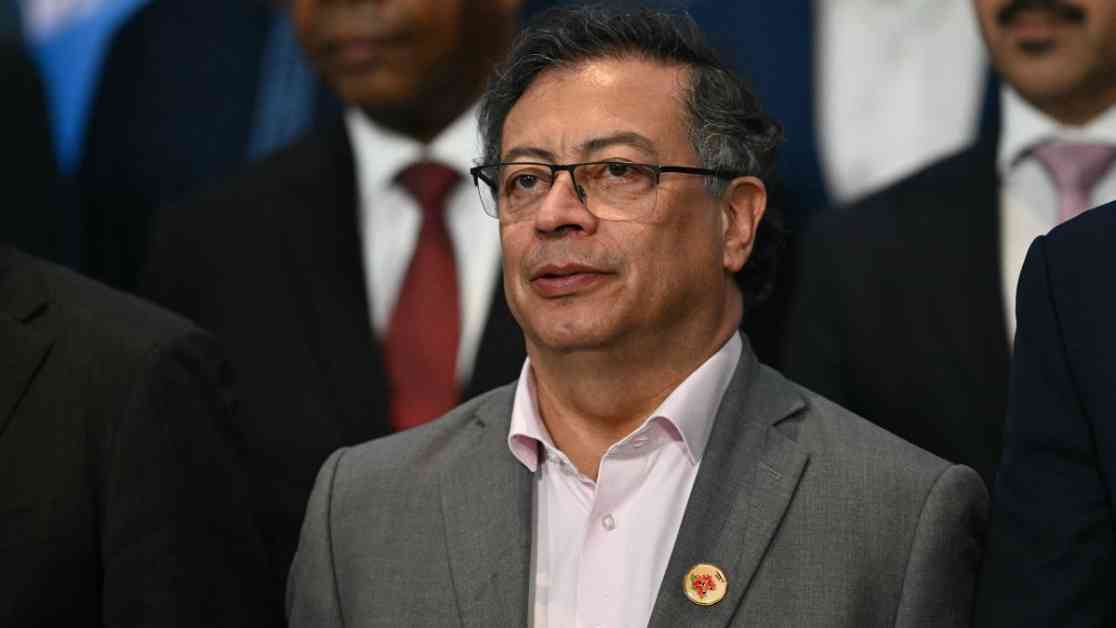Colombia Accepts Trump’s Deportation Terms: White House Confirms Agreement
In a dramatic turn of events, Colombia has agreed to President Donald Trump’s terms following a heated standoff over denied entry to two U.S. military deportation flights. The White House press secretary, Karoline Leavitt, announced on Sunday that Colombia has acquiesced to all of Trump’s demands, which include accepting all illegal aliens from Colombia back into the United States without any restrictions or delays.
The tension escalated when Colombia rejected the deportation flights, prompting Trump to threaten retaliation in the form of tariffs, visa sanctions, and enhanced customs inspections. However, these punitive measures will only be implemented if Colombia fails to honor the agreement to accept deported nationals from the U.S. without reservation.
Colombian Foreign Affairs Minister Luis Gilberto Murillo assured in a statement that the country will continue to receive deported Colombians and provide them with dignified conditions upon their return. This commitment comes amidst mounting pressure and threats from the U.S. administration.
### Politics: Trump’s Ultimatum and Colombia’s Response
Trump’s ultimatum on social media platform Truth Social, where he warned of escalating measures against Colombia, set the stage for a diplomatic showdown. The Department of Homeland Security and the Defense Department confirmed that the deportation flights were indeed denied entry by Colombian authorities.
The retaliatory measures announced by Trump include tariffs on Colombian imports, visa sanctions, enhanced customs inspections, and financial penalties. These actions were justified by Trump as necessary to safeguard national security and public safety in the face of Colombia’s refusal to cooperate.
In a bold move, Colombian President Gustavo Petro responded defiantly to Trump’s threats. Petro emphasized that Colombia is not beholden to any foreign power and pledged to increase tariffs on U.S. imports while diversifying trade relationships globally. This tit-for-tat exchange underscores the high-stakes nature of the dispute between the two nations.
### Diplomatic Standoff: Grounded Flights and Presidential Intervention
The deportation flights, initially cleared for landing in Colombia, were abruptly grounded when Petro revoked diplomatic clearances for the military aircraft. Petro’s office clarified that the decision was motivated by a commitment to ensuring dignified conditions for the returning migrants, rather than a rejection of their return.
As tensions simmered, Mexico and Brazil also faced challenges with U.S. deportation flights, raising concerns about the treatment of migrants and the unilateral actions taken by the United States. Petro’s criticism of using military planes for deportations underscores the humanitarian dimension of the issue.
### Global Response: Guatemala’s Acceptance and Trump’s Immigration Crackdown
Guatemala received deported nationals from the U.S. amid heightened enforcement efforts by the Trump administration to curb illegal immigration. The deployment of additional troops to the U.S.-Mexico border and the crackdown on immigration through executive orders reflect Trump’s hardline approach to border security.
The international condemnation of the treatment of migrants and the violations of bilateral agreements underscores the complex dynamics at play in the realm of immigration policy. As countries grapple with the humanitarian and political implications of deportation flights, the need for dialogue and diplomacy remains paramount.
In conclusion, the resolution of the standoff between the U.S. and Colombia highlights the challenges and complexities of immigration enforcement on a global scale. The diplomatic negotiations and power dynamics at play underscore the need for cooperation and respect among nations to address the underlying issues driving migration and deportation.






















